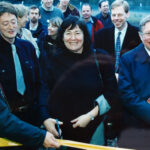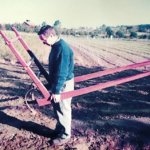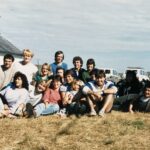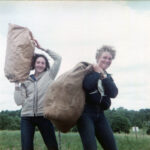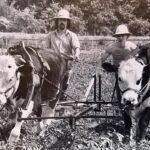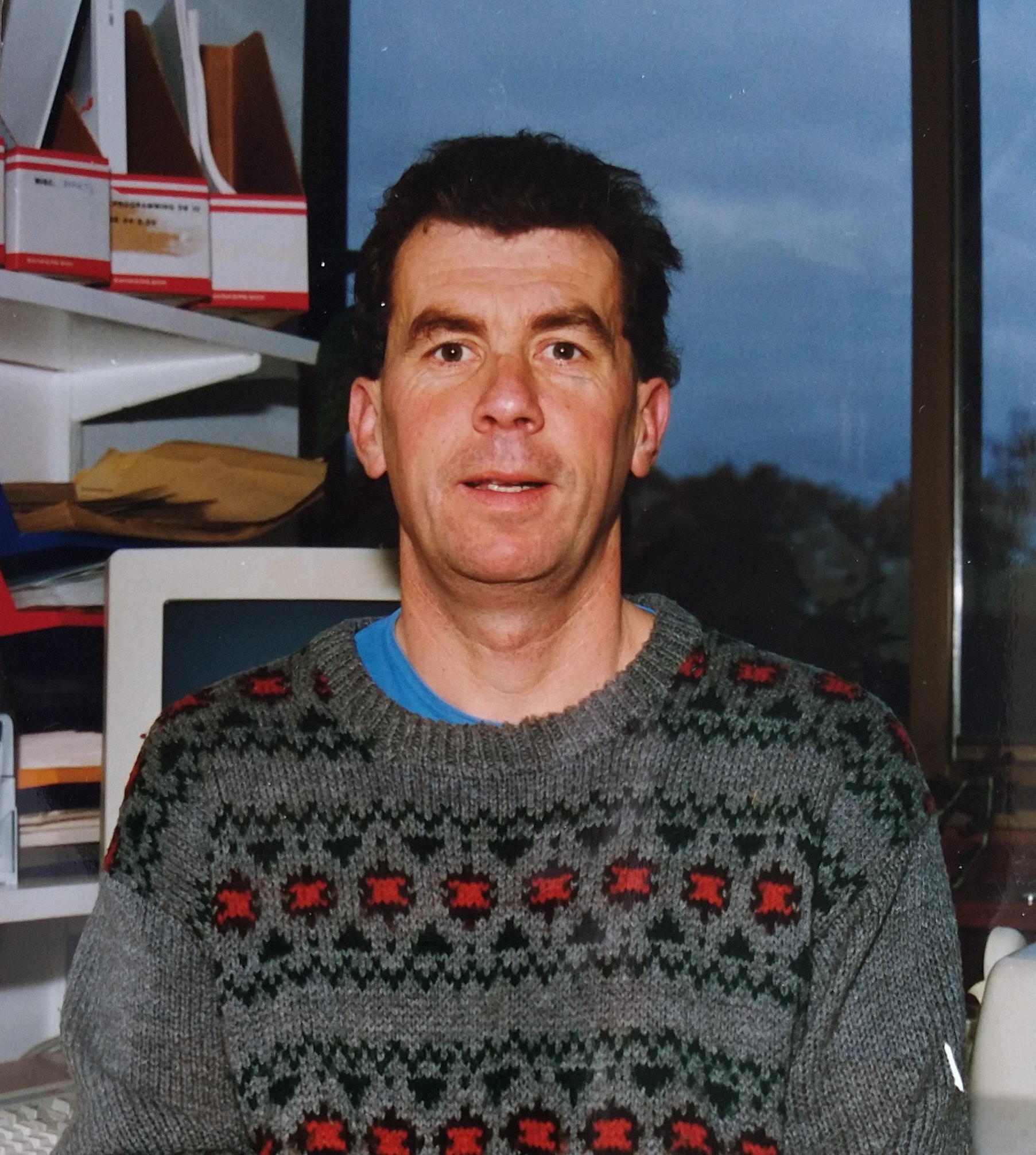
Those early days of Dev Farm consisted of a handful of acres of land, an old railway wagon
and a workshop in the University Village. It was here, with very few resources,
students were introduced to basic agriculture: lots of hand digging, planting,
weeding and harvesting. Later some of the more arduous work was done by Gunder and
Frank, two oxen bought and trained to cultivate with agricultural tools by students and staff.
Looking back those were wonderful days when we all thought we could change the world
and in a way we did. We designed and developed pieces of equipment to till the soil and
weed crops. These could be made by local craftsmen from local materials that could be
pulled by various different animals and even human power if that’s all that was available.
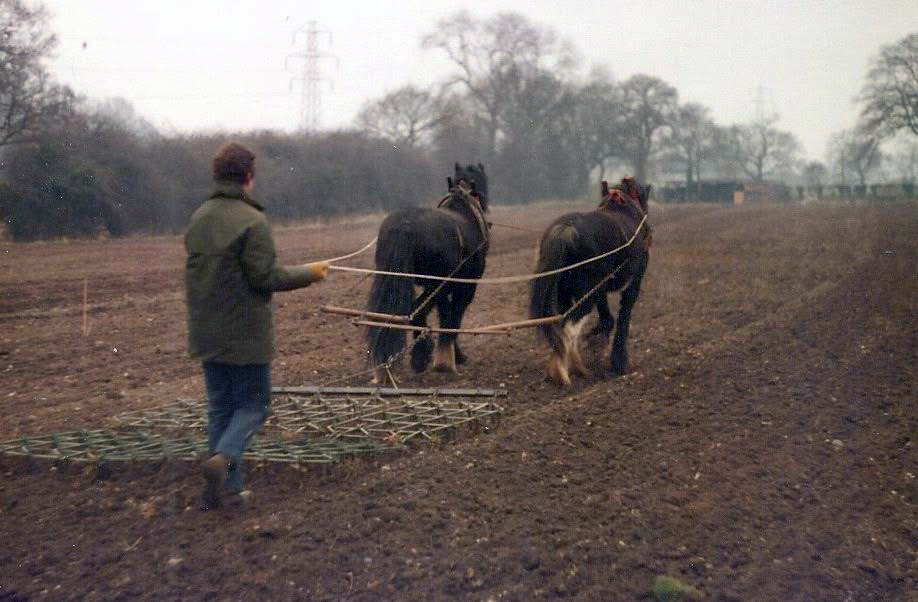
A move across the B1108 to a much larger site neighbouring the Food Research Institute
gave us more scope to develop skills for students to embrace, such as basic surveying and a
chance to enter the world of biogas and animal and human/animal powered water pumps.
Once again resources were limited but with enthusiasm and a lot of initiative these projects
produced results that were acknowledged in the Houses of Parliament and led to
student’s gaining qualifications and recognition that was felt around the world. A flock of
sheep, a pair of White Cattle, a pair of horses and donkeys joined the DEV farm
family and with Gunder and Frank we had a variety of animals to test our newly developed
agricultural equipment made of metal and wood.
The final move for DEV Farm was to sloping site on Bluebell Road, once again a bigger site
that brought challenges and benefits. Instead of an old railway wagon as a base we now had
a purpose built building complete with offices, lecture room, workshop and a large
laboratory room. The centre of our research had now switched from animal power to
looking at water and how it was vital to grow crops and how clean water was a necessity for
healthy human existence. Crop trials using controlled drip irrigation resulted in knowledge
that was transferrable to crop growing around the world. A range of education games were
developed to explain the importance of fair and sustainable food production. These travelled around schools in Norfolk and were a regular at the Royal Norfolk Show and Spring Fling.
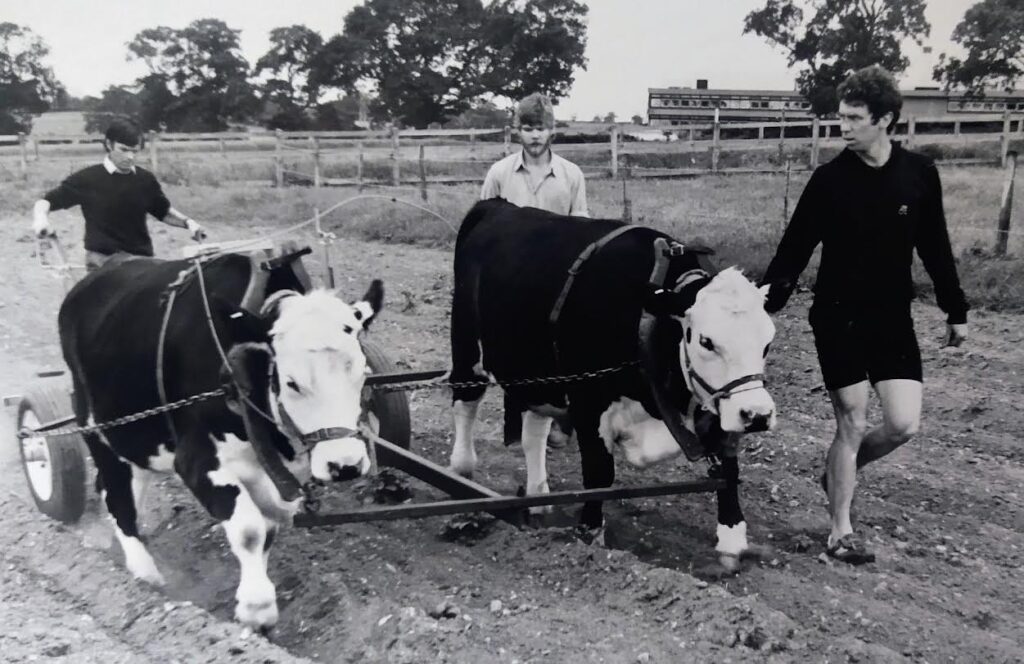
David Gibbon, David Barton and Don Saunders ridging up with Gunder and Frank
On a personal level managing DEV farm was far more important than a regular job.
It gave me chance to meet and make life-long friends with people from all around the world,
see young people who used DEV Farm as their ‘safe place’ when homesick, flourish and
achieve and introduce my children, later on my grandchildren, to different cultures and
farming that helped mould them into the well-rounded human beings that they are today.
Don Saunders
Watton, Norfolk

